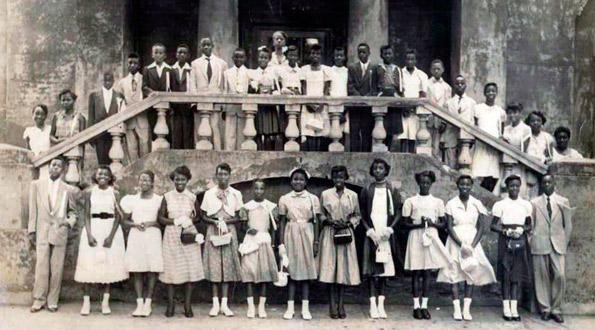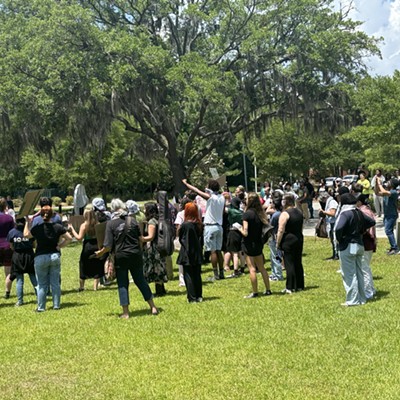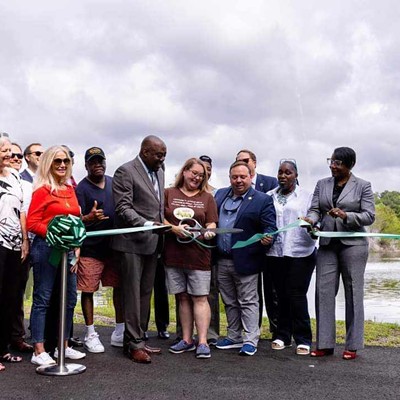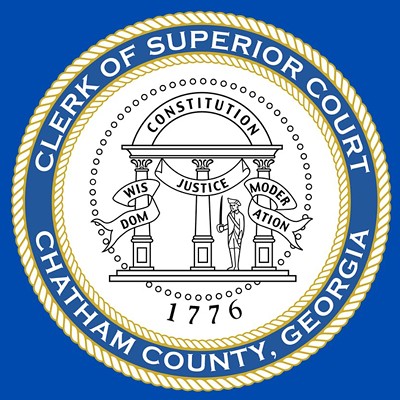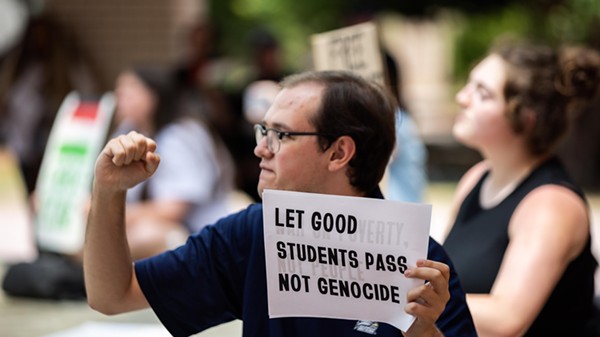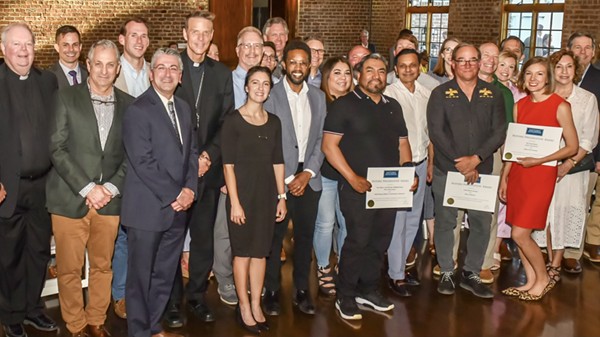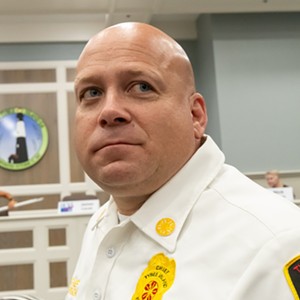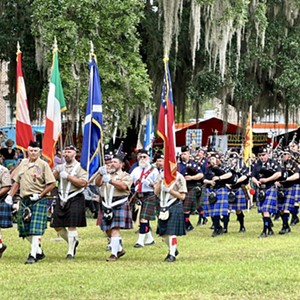Until after the Civil War, it was illegal to teach black children to read and write.
The city of Savannah passed laws in 1817 and 1839 that forbade such education, as did the state of Georgia in 1829. Violations were punishable by a $500 fine for whites. For blacks, the fine was $100 and/or public lashing.
But the urge to learn was strong, and loopholes within the laws allowed for a culture of study to develop.
Local teachers like Matilda Taylor and Mary Wodehouse conducted lessons in secret, their students arriving with their books wrapped in newspaper to hide them from suspicious neighbors. As many as seven secret schools were in operation by 1860, and many Savannah citizens turned a blind eye, some out of beneficence, others because they believed educated slaves could better help on the plantation.
It wasn’t until the Beach Institute was founded in 1867 by the Freedmen’s Bureau that black children had a legal place to learn in Savannah. It was followed in 1873 by the West Broad Street School, established by the Board of Education. The fascinating histories of these two educational institutions are the topic of “The Beach Institute Meets West Broad Street School: A Black Education in Savannah,” a program and exhibit taking place Friday, Feb. 22 at the Ships of the Sea Museum.
A dynamic collaboration between the Black Heritage Festival and the Ships of the Sea Museum, the evening will be led by Dr. Annette Brock, the first African–American woman to act as president of Savannah State University. Dr. Brock is the current chair of the King–Tisdale Cottage Foundation, which manages the Beach Institute African American Cultural Center. She will be joined by scholar and storyteller Vaughnette Goode–Walker, who spends her days leading tours of Savannah’s African–American history.
Goode–Walker values the significance of education from a historical perspective as well as a personal one: Her mother taught home economics at Tompkins High School for 30 years. She iterates the impact the new schools made on the newly–freed population.
“The Beach Institute was the first school built for blacks in the city of Savannah, the neighborhood surrounding it was named for it. It was the anchor of the community,” she explains.
“Education was extremely important. There had been a whole generation of illiteracy. People needed jobs, they needed to be trained.”
Named for Scientific American editor Alfred E. Beach for his donation of funds for the site, the Beach Institute (not to be confused with the public high school on the west side of the city) opened in the fall of 1873. Tuition was a dollar a month. It was turned over to the Board of Education in 1874.
The institute’s most famous alumni was newspaper publisher Robert Sengstacke Abbott, who attended in 1886. Abbott went on to found the Chicago Defender, a successful newsweekly aimed at African–American readers that featured the writing of Langston Hughes.
“He always came back, and he wrote about Savannah in the Defender,” says Goode–Walker.
Attendance dropped off as other schools for black children opened around town, and after 1919, the institute evolved into the Harris Trade School, a precursor to Savannah Technical College. Goode–Walker remembers that her mother used to teach sewing there at night.
Now a cultural center dedicated to the preservation of African–American history, the Beach Institute houses the permanent collection of artist Ulysses S. Davis as well as artifacts from its days as a school, including diplomas and an invitation announcing the invocation of the 1911 graduating class at Second African Baptist Church.
Across town on what is now MLK Blvd., the West Broad Street School opened its doors to black students in 1873 in the tony Scarbrough House, the current home the Ships of the Sea Museum. While the Beach Institute was staffed primarily by white teachers, the West Broad Street School was staffed by black educators, including tailor and teacher James Potter.
Born to free black parents in Charleston, SC, Potter taught children in Savannah secretly before Emancipation and became the first principal at the West Broad Street School. However, when Potter moved over to the Beach Institute, he found he could only rise to the position of assistant professor, points out Ships of the Sea Curator of Exhibits and Education Wendy Melton.
“By then the Freedmen’s Bureau had been taken over by Savannah’s white elite, and they didn’t think that black people could educate themselves,” says Melton ruefully.
Melton researched a retrospective of the Scarbrough House’s educational history titled A Thirst for Learning: A History of the West Broad Street School 1873–1962. The exhibit fascinated Goode–Walker when she first saw it in 2011, and its six large panels featuring photos and stories will be on display during Friday evening’s program.
“Vaughnette liked the idea of giving it a second life,” Melton explains. “It gives us the opportunity to put up the exhibition again for a short viewing and give people context as to why this location is significant to African American History.”
The evening will also announce the launch of the museum’s exclusive online exhibitions, including its history as the West Broad Street School and the documented history of the slave ship Wanderer. It’s also a chance to visit the Ships of the Sea’s breathtaking new North Garden.
“I commend the Ships of the Sea for highlighting this piece of the building’s history,” affirms Goode–Walker. “I’m excited to walk through the relationship between these two schools and the history of black education in Savannah.”
Beach Institute Meets West Broad Street School: A Black Education in Savannah
When: Friday, Feb. 22 at 6 p.m.
Where: Ships of the Sea Museum, 41 MLK Blvd. North Garden Assembly Room,
Cost: Free
Info: shipsofthesea.orgUntil after

